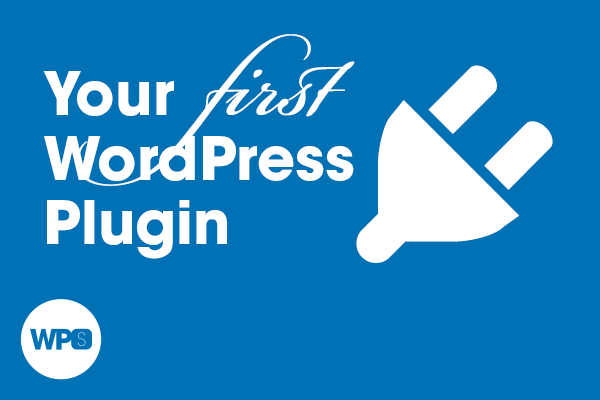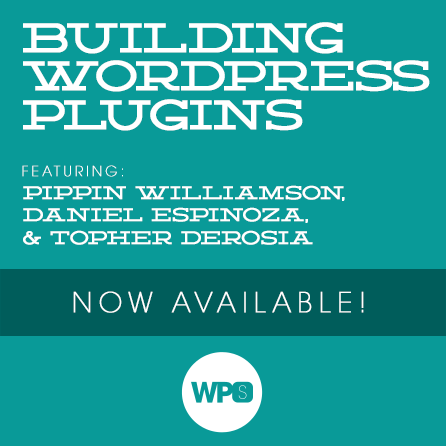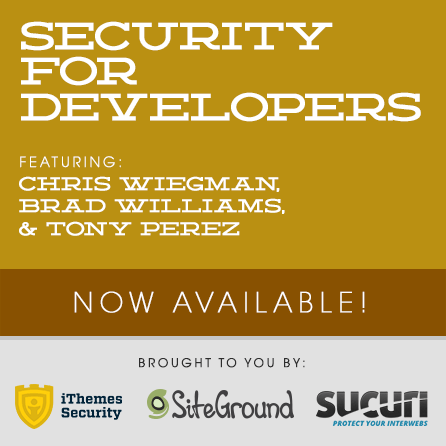Learning Path: Plugin Development
Your First WordPress Plugin
Follow along with Pippin Williamson as he provides expert perspective on what makes WordPress plugins tick, and how you can build your own.
Throughout this course we will build a Simple Post Expiration plugin that does exactly one thing and does it remarkably well: prepend the word “Expired” to a post’s title if a specific date has passed. With this, we’ll learn about the various WordPress coding standards, be introduced to he Plugin API, tap into numerous core hooks, and build each supporting function and plugin file from scratch.
Whether you’re looking to write your very first WordPress plugin, or you’re looking to start writing better WordPress plugins, you’ve come to the right place!
Hooks, Filters, Options, and HTTP API
In this session, Daniel Espinoza shows us how to execute custom code (or let others more easily extend our themes and plugins) by leveraging WordPress Hooks. Next, he takes us through the HTTP API, which makes accessing remote URLs much simpler.
Daniel brings a greater level of understanding to the plugin development process, with his advanced development techniques. Whether you’re just getting into WordPress development, or you’ve been developing for years, you stand to learn something from this dynamic speaker.
Blazing Fast Block Development
You are pretty good at developing blocks, but you need a better workflow. You need a way to create blocks faster. This talk will give you all the resources you need to make your process more efficient and save you a ton of time. Lee has vetted these tools and has his process down to a science. Come learn all of his ways.
Lee is OBSESSED with optimizing his block development workflow for speed and scalability. He’s built a BUNCH of custom block plugins over the years. In this talk, Lee shares the framework he created for quickly building custom block plugins.
Understanding Vulnerabilities (XSS, CSRF, WTF!?)
In this session, Chris will be walking us through the many types of vulnerabilities that are common among websites. More importantly, we’ll explore what an attacker can do with each of these types of vulnerabilities.
Securing your WordPress site is vital to you and your clients. Get familiar with different types of vulnerabilities and what an attacker is looking for. Use this talk to protect your WordPress website and its users.
Writing Secure WordPress Code
Brad Williams is here to talk about writing secure WordPress code, more specifically, data validation, sanitization, escaping, and nonces. He will give examples of what to do and most importantly, what not to do when writing code. Brad lives by the golden rule of writing code for themes and plugins: “Consider all data invalid unless it can be proven valid. ”
After learning about the many different types of vulnerabilities and attack styles, Brad will teach you how to protect against them in your code. By using proper sanitization and escaping of data you’ll be able to stop a would-be attacker from using your code as a point of attack.
What's Next?
After you've worked your way through the first sessions above, continue on with any of these in any order:



